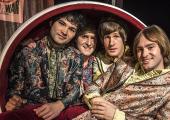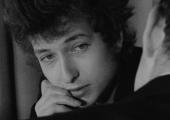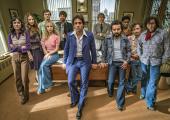Michael Winterbottom has always been a mercurial director, moving swiftly between genres, fiction and documentary, keeping us on our toes. But with On the Road it’s time to mark the tiniest of trends.
24 Hour Party People is one of the best films about the music industry ever made, a riotous fictionalisation of the revolution in Manchester in the Eighties and Nineties that revolved around Tony Wilson’s Factory Records and the bands Joy Division, New Order and The Happy Mondays. 9 Songs was a radical experiment, as the director presented a sequence of gigs as the backdrop of a sexually explicit love story.
Now music features again, in what appears to be the most traditional approach of a trilogy of music-related films, albeit one with a sly sleight of hand.
The heart of the film is a documentary account of a young band on the road, as Winterbottom and a no doubt skeleton crew accompany the up-and-coming London indie four-piece Wolf Alice on a nationwide tour to promote their debut album My Love is Cool.
From Dublin and Belfast, through the North to Glasgow and back towards London, we’re given a low-key, fly-on-the-wall view of the day-to-day of touring: countless miles on the cramped tour bus, arrival, unloading the kit, sound check, press and radio interviews, the concert, dismantling the stage, loading the bus, a party, back in the bus and all over again… This is the no-frills reality of the road, with none of the usual rock and roll clichés and histrionics that we’re accustomed to and that can, in truth, get all very tiresome.
Winterbottom is a master of detachment, who allows characters, actors, stories to reveal their own nuances
While Winterbottom wants to convey the repetitiveness and gruelling relentless of the tour, there’s nothing boring about it for the viewer: even in the short bursts of performance that we're given, the power and poetry of Wolf Alice comes across strongly. In between the gigs, as we slowly get to know the band members, they prove to be charismatic and likeable, bonded by their passion for music and an unspoken, no-nonsense professionalism.
There's also a gentle romantic thread to the film, between Estelle, a new member of the band’s record company, who is helping them with their promotional duties, and Joe, one of the roadies. Chalk and cheese – she from London, he an older Glaswegian, she confident, highly musical herself, he shy and a little morose – they nevertheless bond within the enforced intimacy of the tour bus.
If their eventual liaison seems rather risqué for a documentary, here is Winterbottom’s little twist, and the revelation that On the Road is a cunning addition to the vogue for doc-fiction hybrids. The pair are actually played by actors Leah Harvey and James McArdle, who were inserted into the real world of the band and crew, performing their characters' tasks for real, while playing to Winterbottom’s tune.
It’s not entirely necessary, for the endeavour would have worked very well as a straight-forward documentary. But it’s the kind of move that seems to keep Winterbottom interested. The chief benefit is that Harvey – a new young actress playing a tour newbie – serves as the audience's eyes and ears. Harvey also reveals some singer-songwriter chops of her own; she’s definitely a star in the making.
Another actor in the mix is Winterbottom regular Shirley Henderson, who has a cameo as Joe’s alcoholic mum, whom he briefly meets when the tour reaches Glasgow. But for the most part the band – singer Ellie Rowsell, guitarist Joff Oddie, bassist Theo Ellis and drummer Joel Amey – offer more than enough personality. They’re extremely endearing when following a number of performances with enthusiastic DJ sets for the same fans. And we feel their pain as they begin to fade towards the end of the tour, victims of their own commitment and the demands of the touring life.
All of this is viewed with highly distinctive ease. Winterbottom is a master of detachment, who allows characters, actors, stories to reveal their own nuances, without his help. And the result here is one of his most satisfying films.
@dem2112
Overleaf: watch the trailer for On the Road


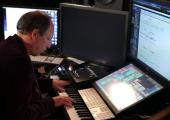
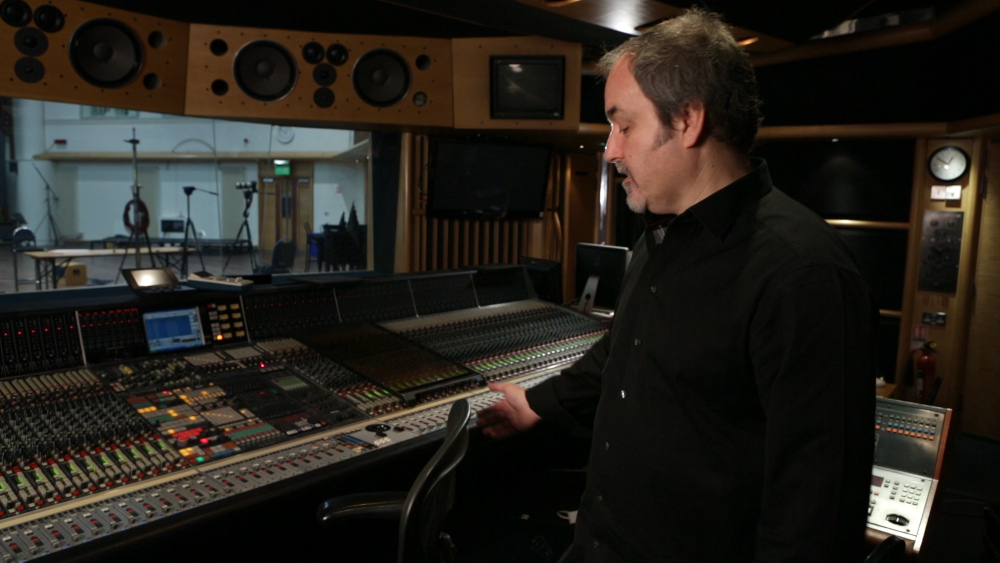 With his mass of interviews, too, Schrader seems determined to be scrupulously fair in giving speakers roughly equal air time – with the unfortunate result that several more minor figures spend quite a bit of time saying not much at all. Okay, he does focus on a handful of major composers for deeper exploration – John Williams, Jerry Goldsmith, Thomas Newman and Hans Zimmer – and Zimmer, in particular, is refreshingly candid in expressing his insecurities over where his next music will even come from. Disney executive Mitchell Lieb, too, seems caught off-guard when revealing that each of the company’s movies costing ‘close to half a billion dollars’ to make, with inevitable financial fallout for everyone involved – not least the composer.
With his mass of interviews, too, Schrader seems determined to be scrupulously fair in giving speakers roughly equal air time – with the unfortunate result that several more minor figures spend quite a bit of time saying not much at all. Okay, he does focus on a handful of major composers for deeper exploration – John Williams, Jerry Goldsmith, Thomas Newman and Hans Zimmer – and Zimmer, in particular, is refreshingly candid in expressing his insecurities over where his next music will even come from. Disney executive Mitchell Lieb, too, seems caught off-guard when revealing that each of the company’s movies costing ‘close to half a billion dollars’ to make, with inevitable financial fallout for everyone involved – not least the composer.